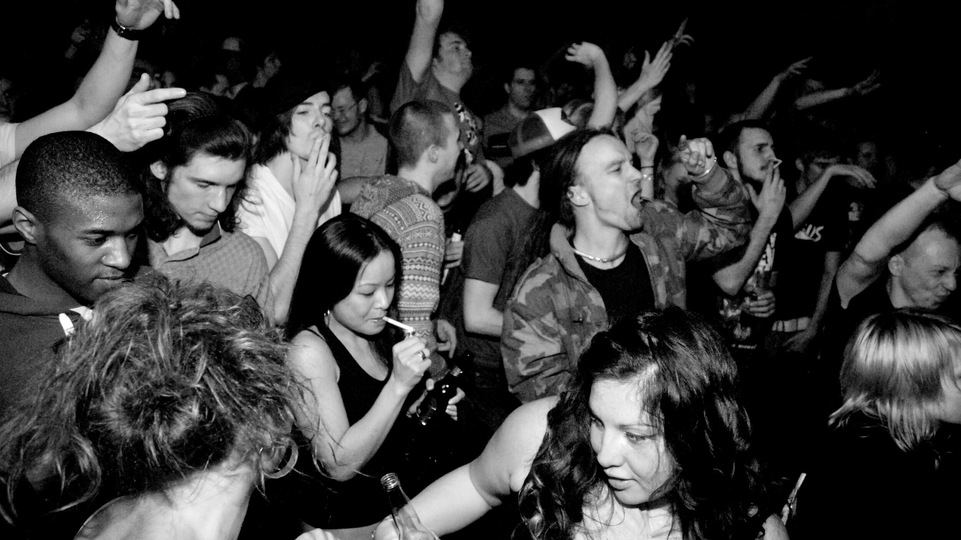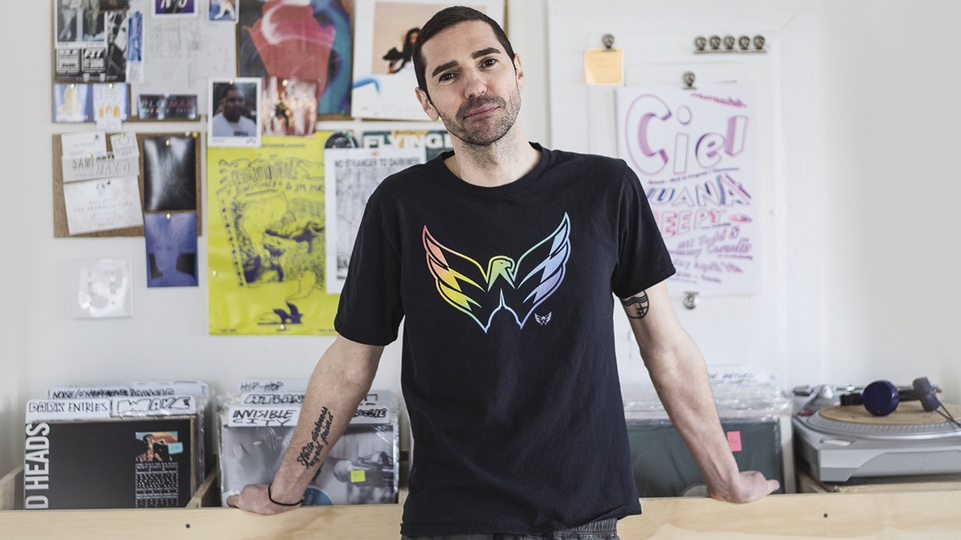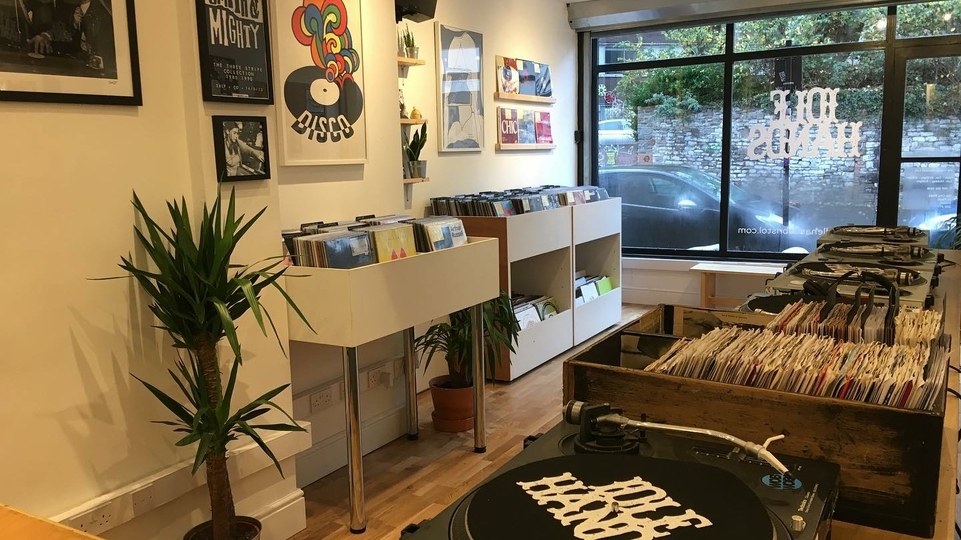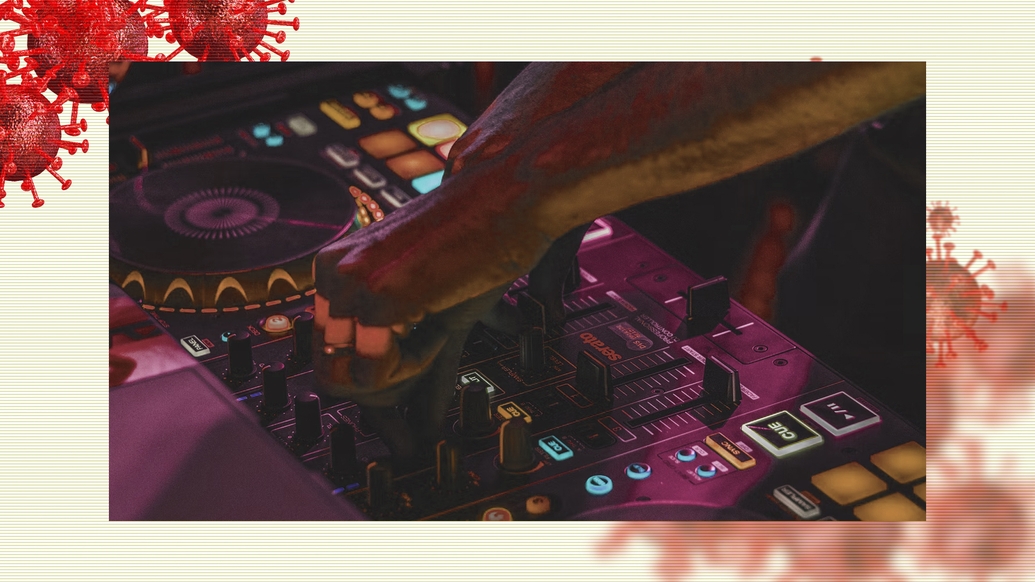
How long Covid has impacted dance music professionals
Even as pandemic restrictions have lifted, and clubs and festivals have returned, the spectre of coronavirus lingers for many due to the debilitating impact of long Covid. Here, Dhruva Balram speaks to people in the dance music industry about how the effects of long Covid, and a lack of understanding around it, have impacted them, and asks whether it should be recognised as a disability
“My energy levels have never returned to what they were,” says London-based DJ and broadcaster DEBONAIR. “I don’t have the muscle strength and energy that I did two years ago, because I’ve had a chronic illness for so long.”
DEBONAIR suffers from long Covid, an illness affecting an estimated 1.3 million people in the UK, according to the Office of National Statistics [ONS]. 18% of those surveyed by the ONS reported that their ability to undertake day-to-day activities has been limited. By one estimate, over 100 million people worldwide will have developed long Covid symptoms six months after recovery. These can include heart palpitations, fatigue, shortness of breath, chest pain or tightness, problems with memory and concentration (“brain fog”), insomnia, dizziness and a range of mental health issues. As the scope of testing widens, the number of patients reporting long Covid symptoms is also increasing. In the UK, one in 10 people are reporting symptoms that last for 12 weeks or longer.
In turn, long Covid is affecting those who work in dance music. Whether it’s in audience-facing positions as DJs, or behind-the-scenes as event producers, programmers or writers, dance music — with its emphasis on late nights and lengthy events — is facing a challenge in how to deal with this new, widespread illness.
Community is at the root of dance music, yet the very act of being together indoors in club spaces heightens the risk of catching the virus — which, in turn, can lead to long Covid, an illness that the industry seems unsure of how to handle. Whether it’s a lack of empathy, or lack of understanding of why people can’t regularly perform to the best of their abilities, there needs to be a safety net for those who require extensive periods of recovery.
After contracting the virus at the onset of the pandemic, DEBONAIR’s anxiety increased. The 35-year-old had “absolutely crazy” heart palpitations, despite never having experienced heart issues before. “I’ve gone through different phases,” DEBONAIR explains. “I’ve been bed bound and haven’t had the energy to digest food. I haven’t been able to eat full meals for long periods. But it’s also not been at all linear. I’m doing better now, but I certainly don’t have the health I did before.”
As a broadcaster and DJ, long Covid diminishes DEBONAIR’s ability to perform. For a decade, she’d presented a regular show on NTS Radio, but with long Covid, she found it a “real struggle” to maintain it. “I was finding it a lot harder to be sharp, to think clearly and find words, which, as a presenter, is obviously a real issue,” she admits. When clubs reopened in 2021, DEBONAIR found performing to a high-energy crowd taxing. The path she had built up as an artist was severely under threat.


‘I’ve gone through different phases. I’m doing better now, but I certainly don’t have the health I did before’ - DEBONAIR, DJ
The illness has affected not just artists like DEBONAIR, but staff from all corners of the dance music industry. Lexy Morvaridi, a cultural programmer, contracted Covid in January 2021 and suffered from “complete brain fog, exhaustion and fatigue”. For months, Lexy Morvaridi was in a strange hallucinatory state. “I was pretty much living to exist,” he says.
Furloughed from his full-time work, he took himself “completely off the grid” to get better. Morvaridi found that, despite an initial acceptance of his situation from those around him, a pattern developed which left him unable to function. “I’ve found people understand and empathise with me when I tell them I have it,” he says, “but when it comes to the day-to-day workload and pace, their actions don’t reflect the initial understanding of what the condition is.”
Mounting research from universities and think tanks has pointed to a lack of empathy for survivors. Due to the unique, revolving nature of symptoms that affect individuals differently, the illness is not taken seriously in workplaces, or by governments — which, in turn, has resulted in a lack of necessary, urgent action.
In their 2021 report, the TUC found that “over half (52%)” of those surveyed had experienced Covid-related discrimination in the workplace; workers were faced with disbelief and suspicion, with employers questioning the symptoms’ impact. Others were accused of not having symptoms at all. Lesley Macniven, Chair of the Long Covid Support Group, who worked with the TUC on its report, said, “Even those with ‘mild’ COVID-19 can suffer daily with fluctuating symptoms, exhausted and alone. Promises we’ll ‘just get better’ have been proved otherwise.”
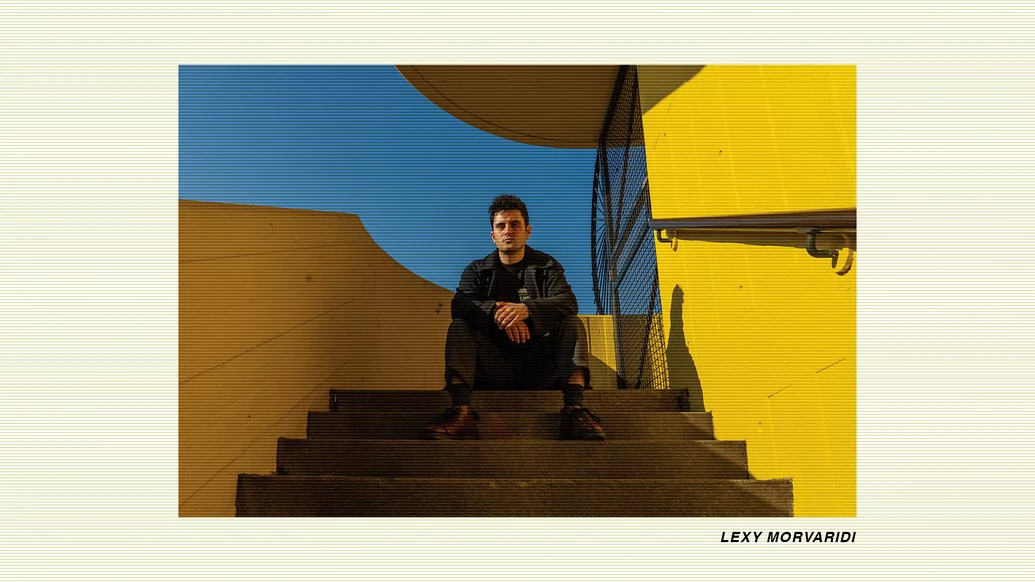

“My experience [with long Covid] has given me perspective of how inaccessible nightlife is at the moment for people with disabilities, hidden or otherwise. We must start looking at how we can make it more accessible to work in and engage with for those that do not feel it is a safe place for them to be” - Lexy Morvaridi, cultural programmer
Workplace legislation to recognise long Covid has not been forthcoming because, under the Equality Act 2010, “a person has to have a condition that has a substantial and long-term impact on their ability to do normal day-to-day activities”. (“Long-term” is usually taken to mean 12 months or more.)
“I remember doing a live show,” says Ahsan-Elahi Shujaat, an event producer. “I tried to explain to the artists what was going on, with an expectation that it would be understood, but they couldn’t care less.”
Having contracted Covid in December 2020, Shujaat was afflicted with the lingering symptoms for months afterwards. “I wasn’t getting better,” he says. “I was tired, achy and I couldn’t breathe.” He spent the next few months mostly in bed, pursuing two or three hours of activity but feeling a malaise afterwards. A common symptom of long Covid, Post Exertion Malaise (PEM), is exacerbated 12 to 48 hours after activity, and can last for days or weeks.
After bouts of insomnia during a full-time workload, Shujaat struggled with sleep deprivation and exhaustion, before his body gave up. “At the end of May 2021, I blacked out while I was at my parents’ house in Newcastle,” he explains. “They had to take me to A&E. At that point, I realised I was banging my head against a brick wall by trying to work and manage what was going on. I left the job because I needed to focus on getting better.”
Of those surveyed by the ONS, fatigue and exhaustion continue to be the most common experiences reported; over 50% of long Covid sufferers detail them as their main symptoms. Long Covid was also found to be prevalent in those aged 35 to 69 years old, females, people from lower-income areas, essential workers and those with another energy-limiting health condition or disability.
Those interviewed also stressed that being tired (or “pandemic-tired”) isn’t equivalent to the fatigue faced by those with long Covid. “Fatigue is quantifiably different,” says Emma Warren, a London-based podcaster and writer whose book, Make Some Space: Tuning Into Total Refreshment Centre appeared in DJ mag's round-up of new and essential electronic music books last year. “Everybody gets tired, but with fatigue, you’re kind of sitting underneath the waterline and you’re not able to operate in ways that other people can.”
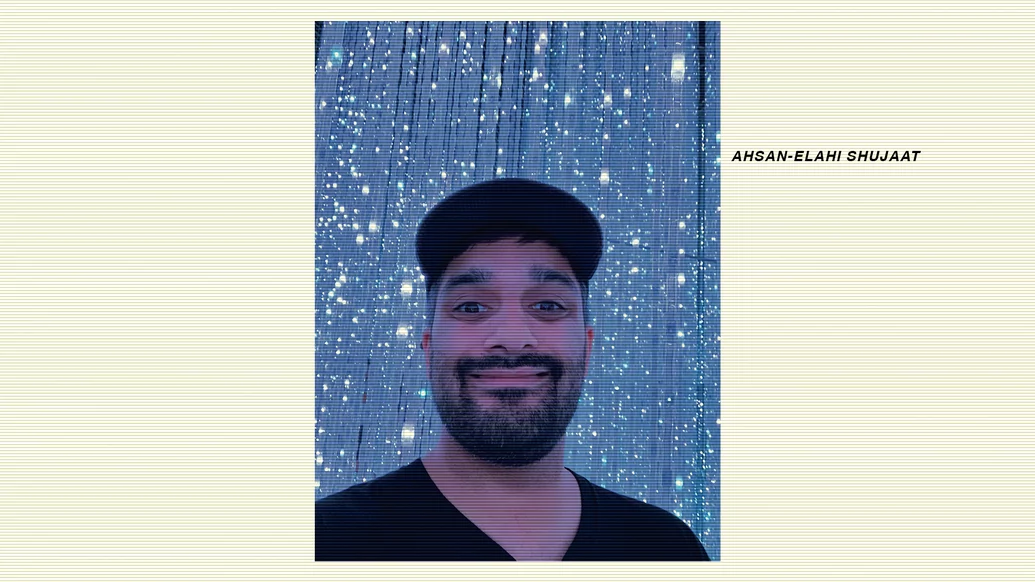

“I remember doing a live show. I tried to explain to the artists what was going on, with an expectation that it would be understood, but they couldn’t care less” - Ahsan-Elahi Shujaat, event producer
Another symptom of long Covid is what’s colloquially known as ‘brain fog’; a term used to describe symptoms such as poor concentration, feeling confused, forgetfulness, lost words and mental fatigue. Warren, who was close to submitting the first draft of a book before contracting Covid on New Year’s Day, 2021, found that she was unable to synthesise information. “I could read, I could take it in, but I couldn’t put it back out again,” she says. “I was unable to finish that draft because I couldn’t work; not just because of fatigue, but because my cognitive function was affected. I was battered, rinsed, flattened.”
Today, there is no immediate financial assistance for those afflicted with long Covid. Many are being turned away from institutions they would usually rely upon. “We’re all utterly indebted to the NHS and how hard medical professionals have worked throughout this time,” DEBONAIR says, “but for the first seven to nine months, I was being gaslit by medical professionals. I was not getting any kind of validation or recognition, and I fully gave up.”
After pandemic-related financial uncertainty caused DEBONAIR to move house on more than one occasion, which led her to fall down the priority list due to changing GP surgeries, she finally had a heart exam last summer: “My heart is now 25% faster than it was before I had Covid”. She could feel herself getting heart palpitations, but medical professionals promised her it was normal. The stress of these experiences, she believes, has been a factor.
“Within humankind, it’s not too fast,” she says, “and hopefully it’ll recover, but that’s just a new reality I live with now. It definitely contributes to why I feel palpitations so much.”
Shujaat has managed to see a nutritionist and a physiotherapist — but all out of his own pocket. “I was going weekly but now, maybe, I go once a month,” he says. “A lot of the money that I earned has gone into recovery tools. I know that’s not an avenue that’s financially available for everyone, so I’ve been quite fortunate to be able to pay for those things.”
Over two years into the pandemic, institutions are finally playing catch up to long Covid. After only focusing on studying individuals who were admitted to hospital, the UK government has since recognised a need for research on those experiencing long-term symptoms who don’t require hospital admittance.
In 2021, the University of Birmingham was awarded £2.3m over two years to lead a major clinical digital study, called the TLC Study. Chief Medical Officer for England and Head of the NIHR, Professor Chris Whitty, says: “Good research is absolutely pivotal in understanding, diagnosing and then treating any illness, to ease symptoms and ultimately improve lives”.


““People who experience fatigue still need communality. We still need to dance, still need music, still need all those things that we know we get from dancefloor culture” - Emma Warren, podcaster and writer
A growing argument is being made in the long Covid community that it should be considered a disability, as that opens up the possibility of practical support. In their 2021 report, the TUC called for long Covid to be “urgently recognised as a disability and COVID-19 as an occupational disease, to give workers access to legal protections and compensation”.
For the individuals we spoke with, having long Covid has given them insight into what it means to be disabled or live with chronic illness.
“It’s important that we learn from how long Covid has impacted people in their everyday lives, and the need for rest, patience and pace to allow those affected to feel supported,” Morvaridi says.
“My experience has given me perspective of how inaccessible nightlife is at the moment for people with disabilities, hidden or otherwise," he continues. "We must start looking at how we can make it more accessible to work in and engage with for those that do not feel it is a safe place for them to be.”
“I’ve had to make a lot of lifestyle changes to accommodate the physical things that I’ve been going through,” Shujaat says. “It’s changed the way that I’ve been able to socialise with friends. I socialise a lot less and spend a lot more time inside. I can’t control the environments that I choose to go into. If I go into those places, I don’t know if there’s always going to be a seat.”
“There isn’t any support,” Warren states, “but I think it can be useful [if it’s called a disability]; people can then choose whether or not they want to identify like that, if it’s useful for them or not. I feel it’s definitely a disability. There are plenty of people in music and creative industries who have energy-limiting conditions,” Warren continues.
“All of the support and understanding I got should be also handed down to other people in the same situation. Not just in terms of practical support, like allowing the long Covid clinic to be accessible to everybody, but also in terms of understanding.”
Long Covid sufferers hope there’s a bright future ahead for them in dance music. Through their perseverance and grit, they’ve made the necessary changes to continue operating in these spaces, but they also hope that people start recognising their needs when reentering an endemic society.
“People who experience fatigue still need communality,” Warren says. “We still need to dance, still need music, still need all those things that we know we get from dancefloor culture. It would be lovely if we could find a way to make that happen — or, maybe, if people with normal levels of energy could make it for us.”


